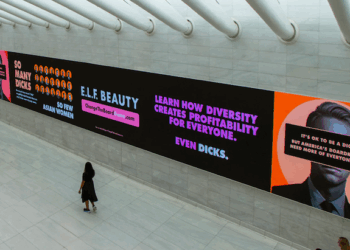All over the world, radio is a hugely competitive industry. Every little bit of rating earned or maintained is a victory born of blood, sweat and tears.
Those at the coalface – the presenters and DJ’s – are under constant pressure to keep listeners listening and ideally, bring more to the party. It takes a lot of planning, a lot of creativity, a lot of guile and above all, concentration, stamina and pushing myriad envelopes.
It was totally unsurprising then, to hear what happened when two Australian DJ’s went a little too far and turned what should have been a really funny spoof into what the world saw as a tragedy.
It is highly questionable whether Mel Greig and Michael Christian can legally or even morally be held liable for the death of British nurse, Jacintha Saldahna, who is believed to have committed suicide after putting through that prank call.
I don’t believe it is a simple question that has a simple answer.
All I do know is that public perception is extremely powerful and that this will always ultimately decide on where guilt should be apportioned.
Clearly, the fact that it was an Australian prank being played on a British subject in the UK and involving a member of the royal family, it is not hard to understand why the British public and media went for the jugular in condemning the call.
But, what interests me most off all is a poll conducted by the Sydney Morning Herald newspaper shortly after the event.
The paper pulled in almost 100 000 votes of which a remarkable 61% said they had found that prank call to be in bad taste even before the suicide.
A fairly minuscule 27 % said it was just a joke and that the consequences were not intended.
Frankly, I would have thought it would have been the other way round. After all these were Australians being polled. And Australians are renowned for not only having a great sense of humour but also for being able to take a joke.
About a decade or so ago, I started a study on the ‘Consumer of the Future’ with which I am continuing today and a very early trend showed that post-9/11 not only were American consumers becoming more conservative but as a result of subsequent sub-prime, investment banking and other blows to consumer confidence in the establishment, there was a growing sense of consumer conservatism all over the world.
What this means is that all mass media and not only radio need to be aware of the fact that people tend now to become a lot more easily offended than they did two decades ago. One only has to look at what comes in to the British and South Africa Advertising Standards Authorities to see just how intolerant consumers have become.
Just as it is here in South Africa, the Australian radio market extremely competitive.
It’s a war out there.
Battles for listeners and constant skirmishes for advertising.
And the more competitive it becomes the more presenters and DJs like Greig and Christian will be forced to push so much harder the envelope.
And of course, the line dividing humour from offense is a very fine one. Almost imperceptible.
What happened to Radio2Day in Australia is a tragedy. Their advertisers pulled out in droves. They would not have done that 10 years ago, I’ll wager.
So far, South Africa has been extremely lucky that advertisers don’t seem to be too perturbed about things that happen to media in which they are promoting their products.
But, there is a movement. And all it will take to make advertisers a lot twitchier about where their brands appear is a suicidal prank like that phone call out of Australia.
Most South African radio presenters have, I believe, come to terms with the fact that like it or not, they do get embroiled in the commercial side of things. Those presenters who shunned ‘live reads’ only a few years ago are now just doing them and be damned.
It is tough being in radio today – its what I call knife-edge media because radio is, in my opinion, the most powerful mass medium on earth. Unlike the bubblegum for the eyes television and newspaper print you can stare at for a week to understand what it means, radio is fleeting; it is theatre for the mind and the problem with theatre of the mind is that different minds are imagining very different things.
That’s what makes it so powerful.
But, it’s also that power, combined with intense competition that make it so bloody dangerous.














